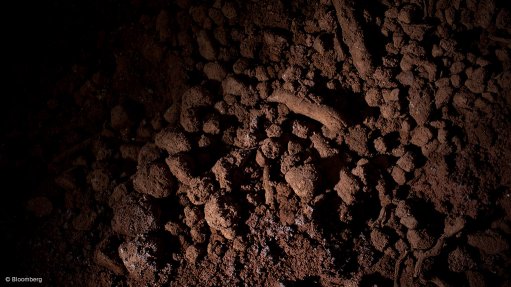
Photo by: Bloomberg
PERTH (miningweekly.com) – ASX-listed Potash West has improved the economics of its Dinner Hill phosphate project, in Western Australia, after processing a chalk seam was taken into account.
The company reported on Tuesday that an updated economic model on the production of a single superphosphate at the Dinner Hill phosphate resource had increased the expected net present value from the A$218-million estimated in the scoping study, to A$331-million.
The project’s internal rate of return has also increased to 30%, instead of the 26% estimated in the 2013 scoping study.
The project’s capital cost estimate remains unchanged at A$144-million, with the project expected to process at a rate of 3.8-million tonnes a year, over a 20-year mine life, to deliver 340 000 t/y of superphosphate.
Potash West MD Patrick McManus told shareholders that the ability to process chalk had resulted in a significant improvement in the economic modelling outcomes for the project.
“The fact that chalk can be processed simplifies the mining and significantly reduces those costs. Excitingly, this recent work has made a very robust project, with good payback, internal rates of returns and net present values even stronger.”
He added that Potash West’s studies have also identified that the phosphate mineralisation could be significantly upgraded relatively simply and cheaply, which would allow for small downstream processing units and significantly reduced start-up costs.
“Importantly, the positive outcomes of the study provide Potash West with the confidence to move forward towards a definitive feasibility study,” McManus said.